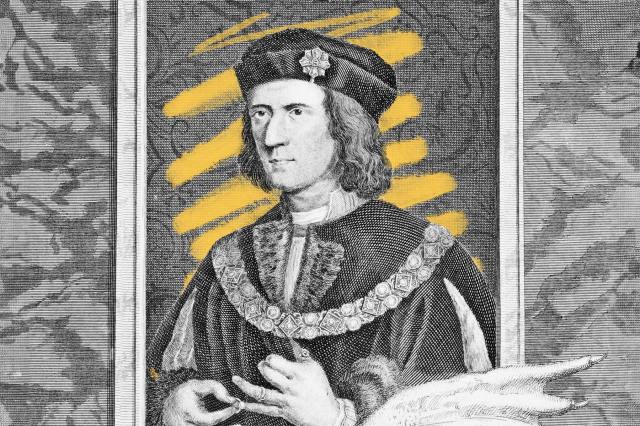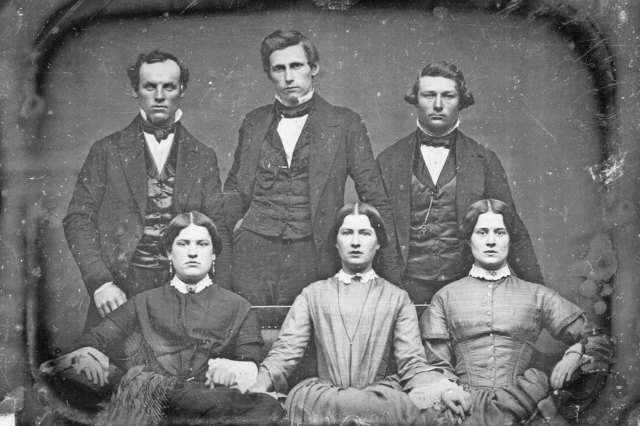Many English monarchs are buried inside ornate tombs located at sites of great reverence. The same can't be said for Richard III, whose long-lost remains were found and excavated underneath a parking lot in Leicester, England. |
| |
| |
|
 |
|
| M any English monarchs are buried inside ornate tombs located at sites of great reverence. The same can't be said for Richard III, whose long-lost remains were found and excavated underneath a parking lot in Leicester, England. Richard III served as king of England from 1483 until he was slain at the Battle of Bosworth Field on August 22, 1485. After the battle, his remains were brought to a nearby friary in Leicester that was operated by the Franciscans. He was buried inside, but the building was torn down in 1538. Centuries of new construction thereafter transformed the city's layout, and the exact location of Richard III's grave was lost in the annals of time. |
|
|
| In 1975, a researcher named Audrey Strange published an article theorizing that Richard III could be buried under a parking lot used by the Leicester City Council. In 2012, a team of researchers at the University of Leicester took it upon themselves to find the monarch's body once and for all, honing in on that very car park. After just six hours of digging, the king's remains were uncovered, though it took five months of further analysis to confirm the bones belonged to Richard III. The grave they discovered was oddly short in length, with Richard's head and torso crammed in tightly at one end. There was also no evidence of a shroud or any personal ornaments, suggesting the king had been hastily buried without fanfare. In 2015, Richard III's remains were finally reinterred at Leicester Cathedral. |
|
 |  |
|
|
 |
|
| |
|
| English monarchs named Richard | | | 3 |
| | | Days served by the longest-reigning English monarch (Elizabeth II) | | | 25,782 |
| | | Days served by the longest-reigning English monarch (Elizabeth II) | | | 25,782 |
|
|
|
| Global land surface covered by the British Empire at its peak | | | ~24% |
| | | Year the earliest known multistory parking garage was built | | | 1918 |
| | | Year the earliest known multistory parking garage was built | | | 1918 |
|
|
|
 |
|
 | | Did you know? |
|
|
George Washington approved a plan to kidnap the future king of England. |
|
| William IV served as king of Great Britain from 1830 until 1837, succeeding his brother George IV. But decades earlier, in 1779, the 13-year-old future monarch, then known as Prince William Henry, enlisted in the British navy as a midshipman. Two years later, William's ship arrived in New York Harbor, coincidentally making him the only member of the royal family to visit the continent during the American Revolutionary War. Word of William's arrival spread among members of the Continental Army, who devised a scheme to kidnap the young prince so he could be used as leverage in future treaty discussions. Colonel Samuel Ogden presented the idea to General George Washington, who approved the plan, saying, "You have my authority to make the attempt in any manner and at such a time as your judgment shall direct." Ultimately, the plot never came to fruition; William safely returned home and eventually ascended to the English throne. |
|


Lainnya dari















0 comments:
Post a Comment